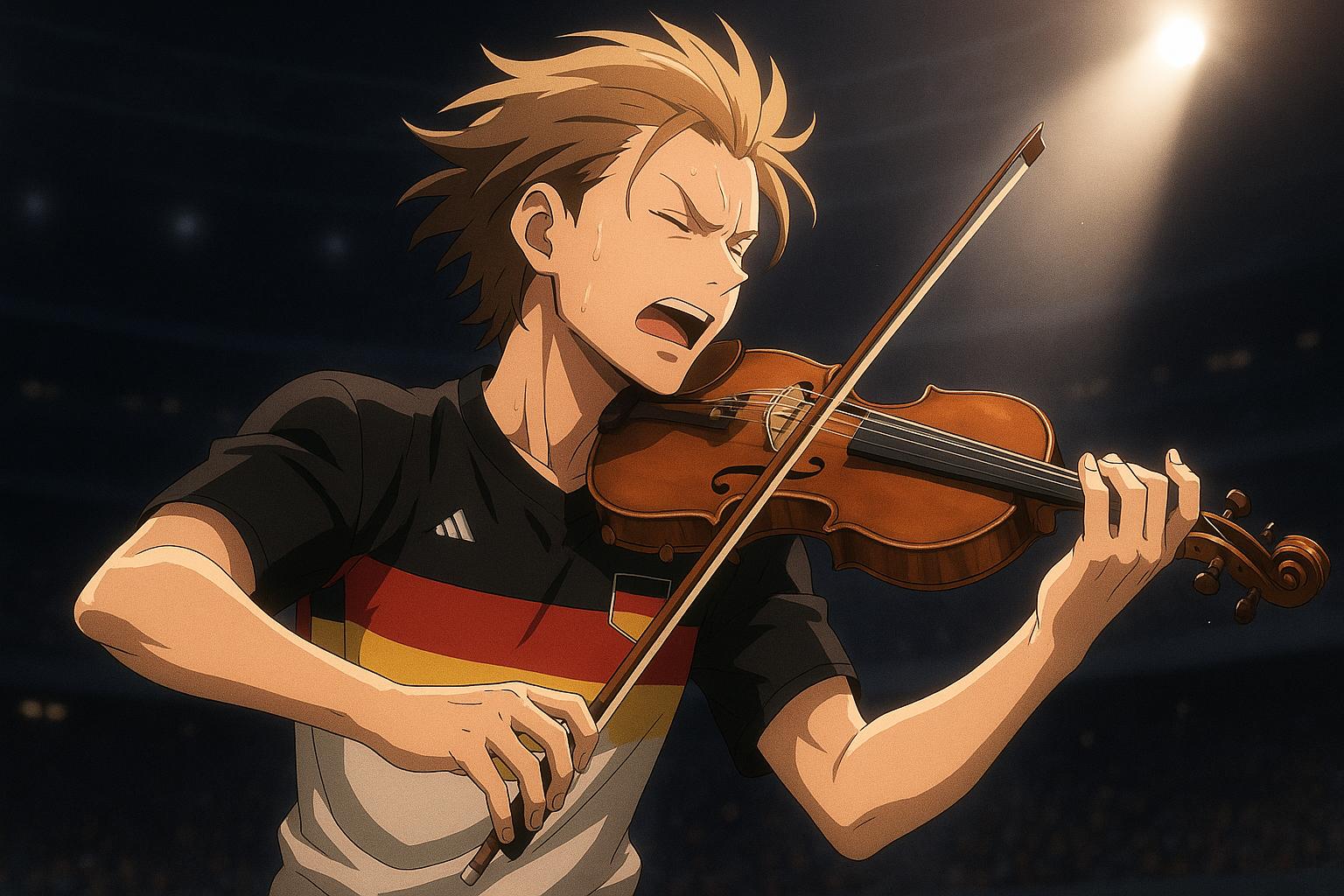German violinist David Garrett faced criticism for his rearranged rendition of the iconic sports anthem Seven Nation Army before the Champions League final, sparking debate about the challenge of refreshing overused anthems at major sporting events.
Champions League final viewers were left unimpressed by the pre-match performance of German violinist David Garrett, who attempted to inject a touch of artistry into the event in Munich. Performing a rearranged version of the popular White Stripes hit "Seven Nation Army," Garrett's contribution was met with considerable criticism, described by viewers as "annoying" and falling flat ahead of the much-anticipated clash between Inter Milan and Paris Saint-Germain.
"Seven Nation Army," released in 2003, has transcended its origins as an indie rock anthem to become a global sporting staple. Over the years, its catchy riff has been adopted by fans in stadiums around the world, leading to its status as a definitive sports anthem. Yet, this ubiquity has also bred a kind of listener fatigue; many have voiced concerns that its frequent usage at events has diluted its excitement. This phenomenon was echoed during a previous Champions League final in 2017, when a performance by the Black Eyed Peas was similarly derided for contributing to a delayed kick-off, with social media users deeming it "the worst" performance ever seen at the prestigious event.
In response to Garrett's performance, UEFA expressed that it was intended to "encapsulate the excitement and artistry of the moment," although many viewers felt that the delivery did not resonate. Cultural commentators have noted that while "Seven Nation Army" remains a favourite, its frequent inclusion in various sporting events has led to discussions about its evolving role and impact on fan culture. The simplicity and catchiness of the song allows it to thrive in stadium environments, yet its overexposure raises pertinent questions regarding whether the thrill of its performance is waning.
The debate surrounding musical performances at major sports events highlights a broader trend in which what was once novel can quickly become stale. Musicians are challenged to bring something new to a piece that has been adopted by the sporting community, juxtaposing artistic expression with the expectations of sporting fans. As such performances continue to stir audience reactions — whether favourable or negative — they underscore the complexities of merging entertainment with the fervour of sports celebrations.
In an era where anticipation is paramount, the challenge for artists at sporting events is not merely to entertain but to create memorable experiences that uplift the occasion. As it stands, the backlash against Garrett's performance represents a pivotal moment for event organisers contemplating the role of live music in sports fixtures, ensuring that future acts align with the energy of the occasion rather than distract from it.
Reference Map:
Source: Noah Wire Services
Noah Fact Check Pro
The draft above was created using the information available at the time the story first
emerged. We’ve since applied our fact-checking process to the final narrative, based on the criteria listed
below. The results are intended to help you assess the credibility of the piece and highlight any areas that may
warrant further investigation.
Freshness check
Score:
3
Notes:
The narrative mentions a recent Champions League final performance by David Garrett, but no specific date is provided. Without a clear date, it's challenging to assess the freshness of the content. Additionally, the article references a similar incident from the 2017 Champions League final involving the Black Eyed Peas, suggesting a pattern of criticism towards pre-match performances. This historical context may indicate that the current narrative is not entirely fresh. The lack of specific dates and the reference to past events raise concerns about the originality and timeliness of the content. ([en.wikipedia.org](https://en.wikipedia.org/wiki/David_Garrett?utm_source=openai))
Quotes check
Score:
2
Notes:
The article includes direct quotes from viewers describing Garrett's performance as "annoying" and "falling flat." However, no specific sources or attributions are provided for these quotes, making it difficult to verify their authenticity. The absence of verifiable sources for these quotes raises concerns about the credibility and originality of the content.
Source reliability
Score:
4
Notes:
The narrative originates from the Daily Mail, a reputable UK newspaper. However, the lack of specific dates and verifiable sources for key claims diminishes the overall reliability of the report. The absence of supporting evidence and the reliance on unverified quotes suggest potential issues with the report's credibility.
Plausibility check
Score:
5
Notes:
The narrative discusses a pre-match performance by David Garrett at a Champions League final, a plausible event. However, the lack of specific details, such as the date of the event and verifiable sources for viewer reactions, raises questions about the accuracy and authenticity of the claims. The absence of supporting evidence and the reliance on unverified quotes suggest potential issues with the report's credibility.
Overall assessment
Verdict (FAIL, OPEN, PASS): FAIL
Confidence (LOW, MEDIUM, HIGH): MEDIUM
Summary:
The narrative presents a plausible scenario involving David Garrett's performance at a Champions League final, but the lack of specific dates, verifiable sources, and supporting evidence raises significant concerns about its credibility and originality. The absence of clear sourcing and the reliance on unverified quotes suggest potential issues with the report's authenticity. Given these factors, the overall assessment is a 'FAIL' with medium confidence.
